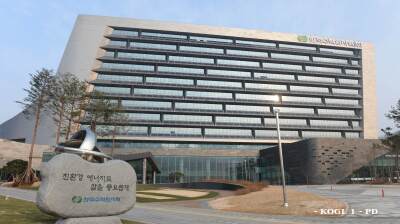Serbian Minister of Mining and Energy Dubravka Djedovic Handanovic signed a memorandum of understanding (MoU) with two Chinese companies regarding investments in renewable energy sources on January 26. The investment amounts to approximately €2bn, with Shanghai Fengling Renewables being the principal investor.
The agreement signed with Shanghai Fengling Renewables and Serbia Zijin Copper, in which Serbia holds a co-ownership stake, is the start of Serbia's largest-ever project in the realm of renewable energy.
The ambitious project envisions the establishment of a plant near Bor, with total capacity of 2GW.
It includes the construction of a wind power plant generating 1,500 MW, a solar power plant with a capacity of 500 MW and the creation of a factory for green hydrogen production capable of producing around 30,000 tonnes annually.
Djedovic Handanovic highlighted that the generated energy will primarily cater to the production needs of Zijin, a major Serbian exporter that has significantly expanded its operations, particularly following the completion of the Bor smelter reconstruction.
Djedovic Handanovic announced that the construction of the plant is scheduled to start in the first quarter of next year, with the first phase targeting 700 MW set to be completed by mid-2026.
The goal is to finalise the entire project, achieving the full 2,000 MW and the green hydrogen production capacity of 30,000 tonnes per year, by the end of 2028.
This initiative is poised to generate between 300 to 500 new jobs, predominantly in the renewable energy sector.
With this strategic partnership, Serbia is set to emerge as a major hub for the production and equipment of renewable energy projects, including green hydrogen. The project is also expected to play a crucial role in advancing Serbia's energy security and independence goals, aligning with the country's ambition to achieve carbon neutrality by 2050.
bneGREEN

EXPLAINER: What is the EU’s CBAM and how will it affect global trade from 2026?
The European Union’s Carbon Border Adjustment Mechanism (CBAM) will enter its full operational phase on January 1, 2026, marking a major shift in global climate and trade policy.

Iran faces critical water crisis after driest year in five decades
Iran faces critical water crisis after driest year in five decades with 40% nationwide rainfall drop.

Global renewables to double by 2030, but IEA warns momentum must accelerate
Global renewable energy capacity is on course to double by 2030, reaching 4,600 GW—comparable to the current combined total of China, the European Union and Japan—according to the International Energy Agency’s Renewables 2025 report.

South Korea’s embrace of SMRs as a pillar of nuclear policy
Spearheaded by Korea Hydro & Nuclear Power, these compact reactors are increasingly being seen as central to the nation's energy policy, offering flexibility, scalability, and ultimately a pathway to carbon neutrality




